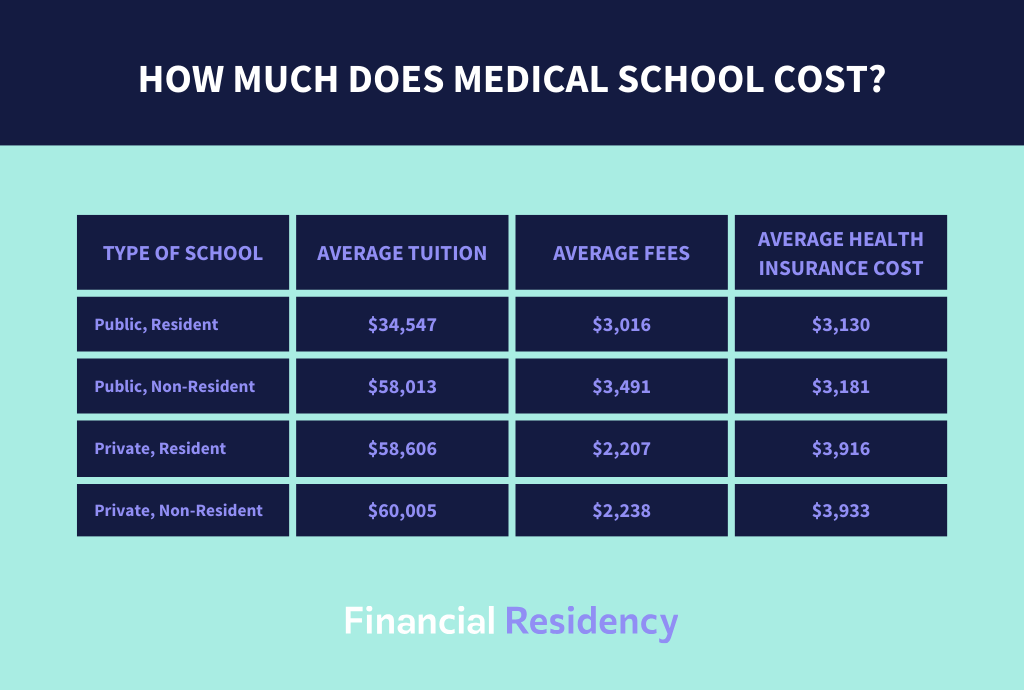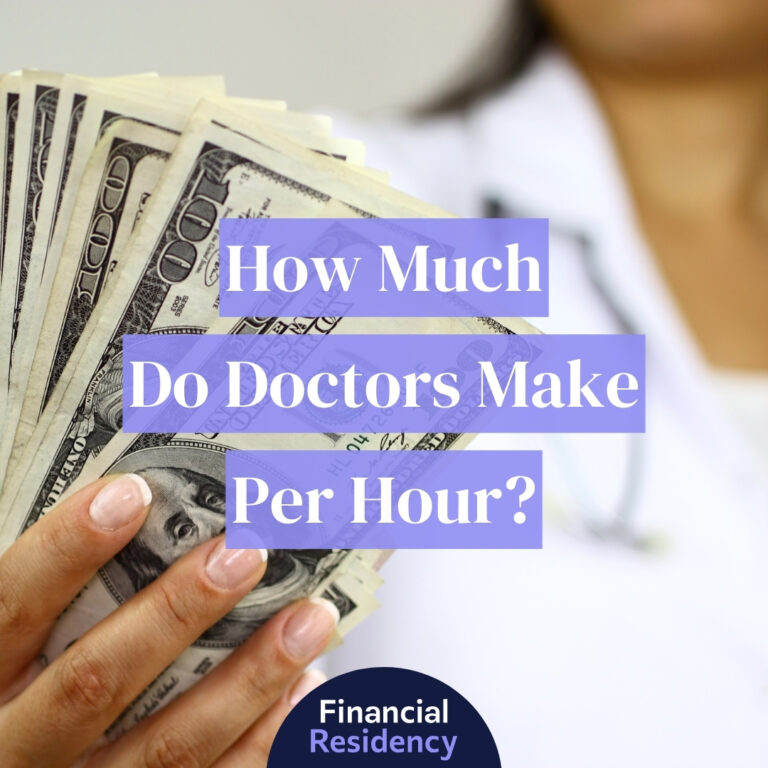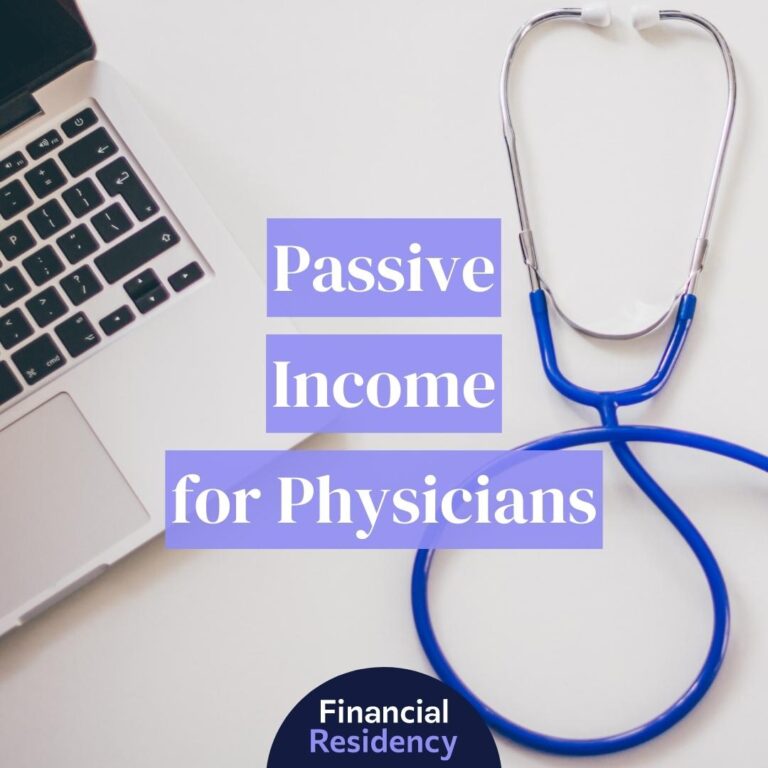Whether it’s been a lifelong dream or you suddenly found a passion for the medical field, medical school can help you achieve your dreams of working in the medical industry. But is medical school worth it?
The answer truly depends on your goals, finances, and what you can handle, as it’s not something to take lightly.
How Much Does Medical School Cost?
Before attending medical school, you must consider the monetary commitment. Whether you pay for it yourself or borrow money, it’s an incredible investment in yourself and the community.
Financially speaking, medical school is a major investment, and this is in addition to the financial investment for your undergraduate degree. The average cost for an undergraduate degree is $36,436 per year, including books, living costs, and tuition. However, this number generally increases annually by 2%.
Medical school adds another layer of financial responsibility. Here are the average tuition costs for first-year medical students.
| School Type | Average Tuition |
| Public school, resident | $34,547 |
| Public school, non-resident | $58,013 |
| Private, resident | $58,606 |
| Private, non-resident | $60,005 |
View the full report here.
In addition to tuition, you must consider the other medical school costs. Housing, transportation, and health insurance expenses are among the highest medical school costs to consider, next to tuition.
The Association of American Medical Colleges estimates the cost of living for first-year medical students to be $27,200. This includes housing, food, transportation, and other basic living expenses.
In addition to this, you must consider ‘other college fees’ and health insurance.
| School Type | Average Fees | Average Health Insurance Premium |
| Public school, resident | $3,016 | $3,130 |
| Public school, non-resident | $3,491 | $3,181 |
| Private, resident | $2,207 | $3,916 |
| Private, non-resident | $2,238 | $3,933 |

Other Factors to Consider
In addition to cost, there are other important factors to consider when deciding if medical school is worth it.
Earning Potential
As of 2022, the average salary of physicians is $229,300. But the specialty you go into may pay more or less.
The pay range varies based on specialty, with pediatricians earning the lowest average salary of $190,350, and anesthesiologists, general, pediatric, and orthopedic surgeons, radiologists, pathologists, cardiologists, dermatologists, ER physicians, and OB gyns earning an average salary of $239,200.
Compare your potential salary to the debt you’ll carry into adulthood to determine if medical school is worth it or if you’ll carry the school loan burden for too long.
Loans and Scholarships
Scholarships are your best bet to make medical school more affordable because you don’t have to pay them back. You should also exhaust any grant opportunities because they don’t require repayment. Check with your school, local government, and even nearby businesses.
After exhausting all opportunities for financial support, you may have to resort to student loans.
The downside is federal student loans have an aggregate limit of $138,500, including any loans used for undergraduate schooling. If you exceed the limit, you must resort to private student loans, usually with a much higher interest rate or less attractive terms.
Before taking on loans, determine the total cost with interest, whether they make sense, or if you should look for a better alternative.
Time Investment
Time is money, so determining whether the time investment is worth it is important. The specialty and school you choose will determine the length of your medical school education.
Everyone must attend four years of undergrad school. Afterward, you attend medical school, typically for four years, and then start your residency.
Residencies can last anywhere from 3 to 8 years, depending on your chosen specialty. In total, that could mean as much as 16 years of school.
You should decide if this is worth it if you can afford to wait that long to have a high-paying career, and if it works into your long-term financial plans regarding how long you intend to work before retiring.
Job Demand for Physicians
The demand for physicians will always be present, but the percentage changes. Currently, the outlook, according to the BLS, is average at 3%.
Job Satisfaction
No one will love their job 100% of the time, and all jobs have challenges, but understanding the burnout rate and job satisfaction of different specialties can help determine if your chosen path is worth it.
According to Medscape, pathologists, plastic surgeons, and psychiatrists have the lowest burnout and depression rates. Emergency room physicians have the highest burnout rate and least job satisfaction, likely due to the high-pressure nature of the job, including demanding schedules, on-call shifts, and handling complicated situations.
Physicians vs. Other Professions
Doctors make an average of $239,200 or higher, depending on the specialty, but other professions have high salaries with less education required, including:
- Chief executives – $246,440
- Airline pilots – $225,740
- Computer and information system managers – $$173,670
- Financial managers – $166,050
- Lawyers – $163,770
Signs that Medical School Isn’t for You
Even if you’ve dreamt of becoming a doctor since you were a small child, there may be some signs to consider that determine medical school isn’t for you.
You Don’t Have a High Enough GPA
Medical school entrance requirements are challenging. The average GPA needed to get into medical school is 3.64, but it can be higher at some schools. Getting into medical school could be challenging if you struggle to keep an average GPA of at least this.
You Aren’t Ready for the Sacrifices
Depending on your chosen specialty, your medical school path could take up to 16 years. You must be in the right mindset to sacrifice the ‘typical 20-something-year-old’ lifestyle and immerse yourself in your studies and training. This could mean putting off dating or marriage, or if you’re already married, it requires your spouse to be on board, which can cause problems, especially in new marriages.
You Don’t Like to be at the Bottom of the Totem Pole
Working as a medical student isn’t glamorous. You’ll have the grunt jobs and always have to answer to someone. There will be challenging days that will make you want to throw in the towel, and you won’t have any type of say for what feels like the first half of your adulthood, which isn’t something many people can handle.
You Aren’t a Good Test Taker
If standardized tests are the bane of your existence, don’t put yourself through the pressure of medical school. You must pass the standardized tests to get into medical school and get licensed. Unless you’ve mastered your test-taking skills, look elsewhere.
You Don’t Like Change
Medical school may be all about science and math, which is straightforward, but there’s nothing straightforward about healthcare. What you learn today may be completely different in five years, requiring you to relearn what you already thought you knew. If you don’t like change, this career could send you into a tailspin and not be as successful as you hoped.
You’re Living Someone Else’s Dream
If you’ve always been told ‘you’ll make a great doctor,’ or your parents are both doctors, as were your grandparents, so you feel pressured to do so, don’t.
Make sure the dream is yours, as you have to put in the hard work, time, and money. Doing it for someone else means doing it for all the wrong reasons.
Is Medical School Right For You?
So, is medical school worth it? It definitely can be for the right person.
Deciding if you should attend medical school requires evaluating the monetary and time investment while also considering other factors, including the sacrifice, requirements, and grueling work involved in becoming a physician.




